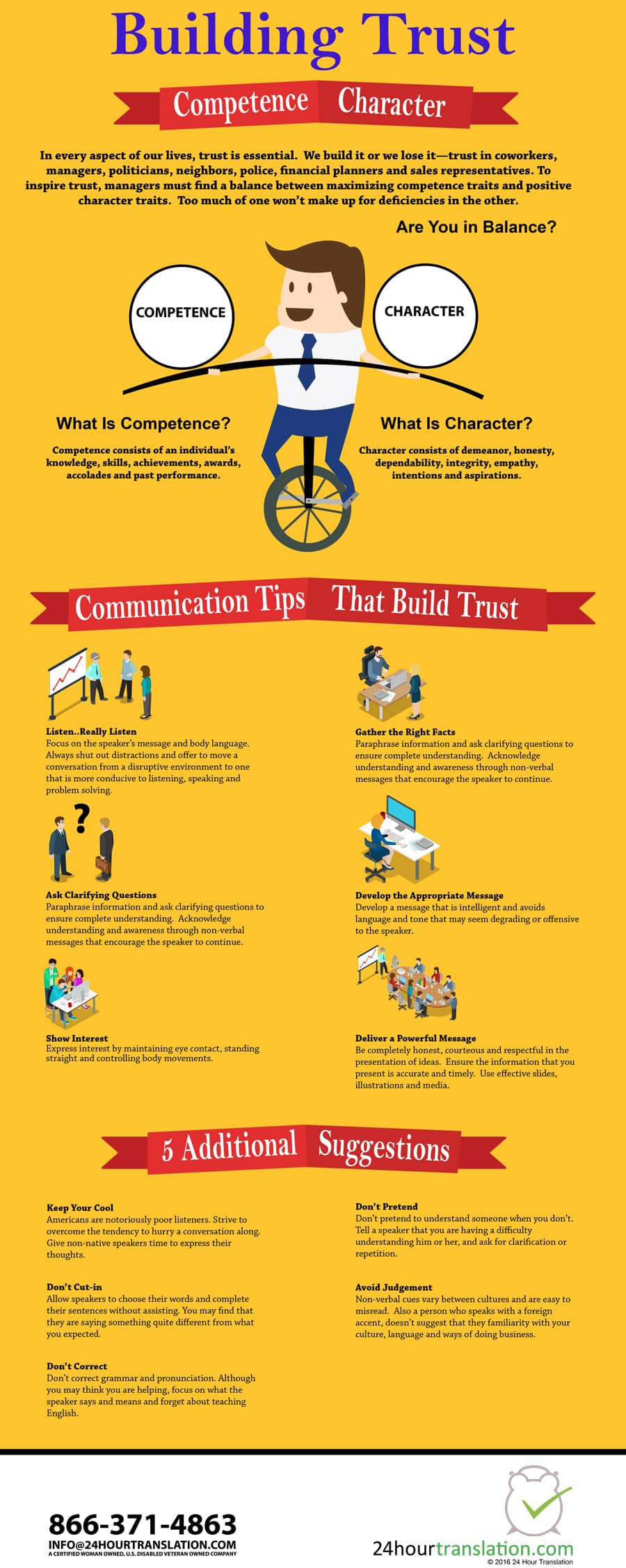
When dealing in foreign markets and international business, in particular, sometimes our options are so limited that we must accept high risk that our trust will be betrayed. With this in mind, managers must calculate the difference between low trust and high trust and how trust can be improved.
The Cost of Low Trust
Trust has a financial cost. When a trading partner is untrustworthy, large financial costs may ensue. These cost can stem from a supplier’s inability to deliver what was promised. But like many business events, one broken commitment can quickly escalate into a slew of related problems. For example, a missed delivery date can delay an entire order of goods that your company is manufacturing for a product launch event where product is expected to be on hand.
The cost of low trust can be easily quantified, making problems with trust not only a social dilemma but also an economic and competitive nightmare. As low trust is quantifiable, so are the benefits from working with trustworthy business partners.
What Trust Implies
In international business, trust may be perceived as and built on factors such as nationality, ethnicity, gender, competence and character. For the purpose of this article, we confine trust to the dimensions of competence and character. Competence consists of an individual’s knowledge, skills, achievements, awards, accolades and past performance. Character consists of demeanor, integrity, intentions and aspirations. A manager may seem trustworthy if he is competent in his occupation or is recognized in his field of expertise. However, if the manager is disliked by others and treats others poorly, the manager’s level of trustworthiness drops.
Building Trust
A primary purpose of any manager must be to inspire trust. To inspire trust, managers must find a balance between maximizing positive character and competence traits. Too much of one won’t make up for deficiencies in the other. From a character standpoint, a manager’s trust comes down to how credible he is perceived by others. When a leader has a knack for coming off as credible and admirable, he can build trust quickly. Thus a manager who displays competence should focus on developing credibility at the personal level.
Establishing credibility demands strong listening skills. In international business, listening can be particularly challenging. While English is increasingly becoming the language of international business, it still presents challenges when communicating with someone who speaks English as a second language. In some cases, a firm must be prepared to hire an experienced translation services company or interpreter.
The attached infographic features a number of strategies that can help managers communicate more effectively with international business people. Among the most important tips is to concentrate on listening and refraining from interrupting. In other words, listen instead of talking. Demonstrate courtesy and your desire to understand the needs of the person communicating. When you have doubts about what you’ve heard, paraphrase what has been said and confirm your understanding.
